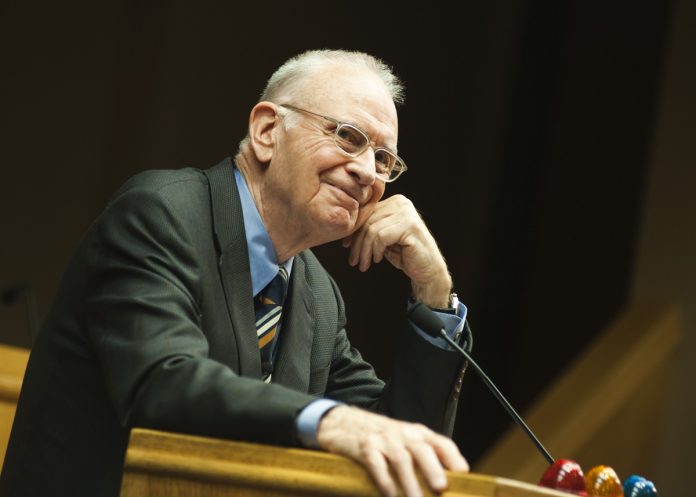By Lee H. Hamilton
No matter how hard we try, we really can’t avoid one another. We live in a world where what takes place somewhere else on the globe has a very good chance of affecting us.
The pandemic, of course, is a perfect example. A virus that infected humans in one city in China spread with breathtaking speed around the world, beyond the power of governments—or anyone else—to stop it.
But then, it often seems like everything is interconnected these days: workers, tourists, ideas, commerce, communications, drugs, crime, migrants, refugees, weapons, climate impacts… and, of course, illnesses. It’s one reason the distinction between “foreign” and “domestic” policy is, at heart, superficial. Globalization is a powerful force in the modern world, and you can see it on your block.
The forces of globalization generate benefits and difficult problems, all of which must be confronted, often simultaneously. Take, for instance, nuclear proliferation. It’s dropped out of the headlines but stopping the spread of weapons of mass destruction is an ongoing priority for any US administration and the world. Similarly, there are benefits to the US in the innovation, talent, and drive that many immigrant workers possess. But migration also causes disruption, both social and economic, and will remain a domestic political flashpoint for as long as the US remains an attractive destination.
You can also see an example of our interconnectedness whenever you go to a shopping mall. All countries need something from other places, whether it’s food or cars or watches or clothing. Open trade allows every country to produce what it does best. But to factory workers thrown out of their jobs or farmers facing stiff competition from overseas, the details matter a lot. This is why trade talks go on constantly among nations and trade is always high on the list of domestic political issues.
None of this is to say that globalization won’t see hiccups. There’s intense political pressure to erect barriers, both in the US and in other countries, from segments of the population that haven’t seen its benefits—only job losses and cultural change. And the pandemic has forced a lot of countries to recognize that a globalized supply chain leaves them vulnerable to shortages at critical moments. Still, whether we like it or not, we’re all interconnected: the challenge is to make it work as well as possible for all of us.
Lee Hamilton is a Senior Advisor for the Indiana University Center on Representative Government; a Distinguished Scholar at the IU Hamilton Lugar School of Global and International Studies; and a Professor of Practice at the IU O’Neill School of Public and Environmental Affairs. He was a member of the U.S. House of Representatives for 34 years.













